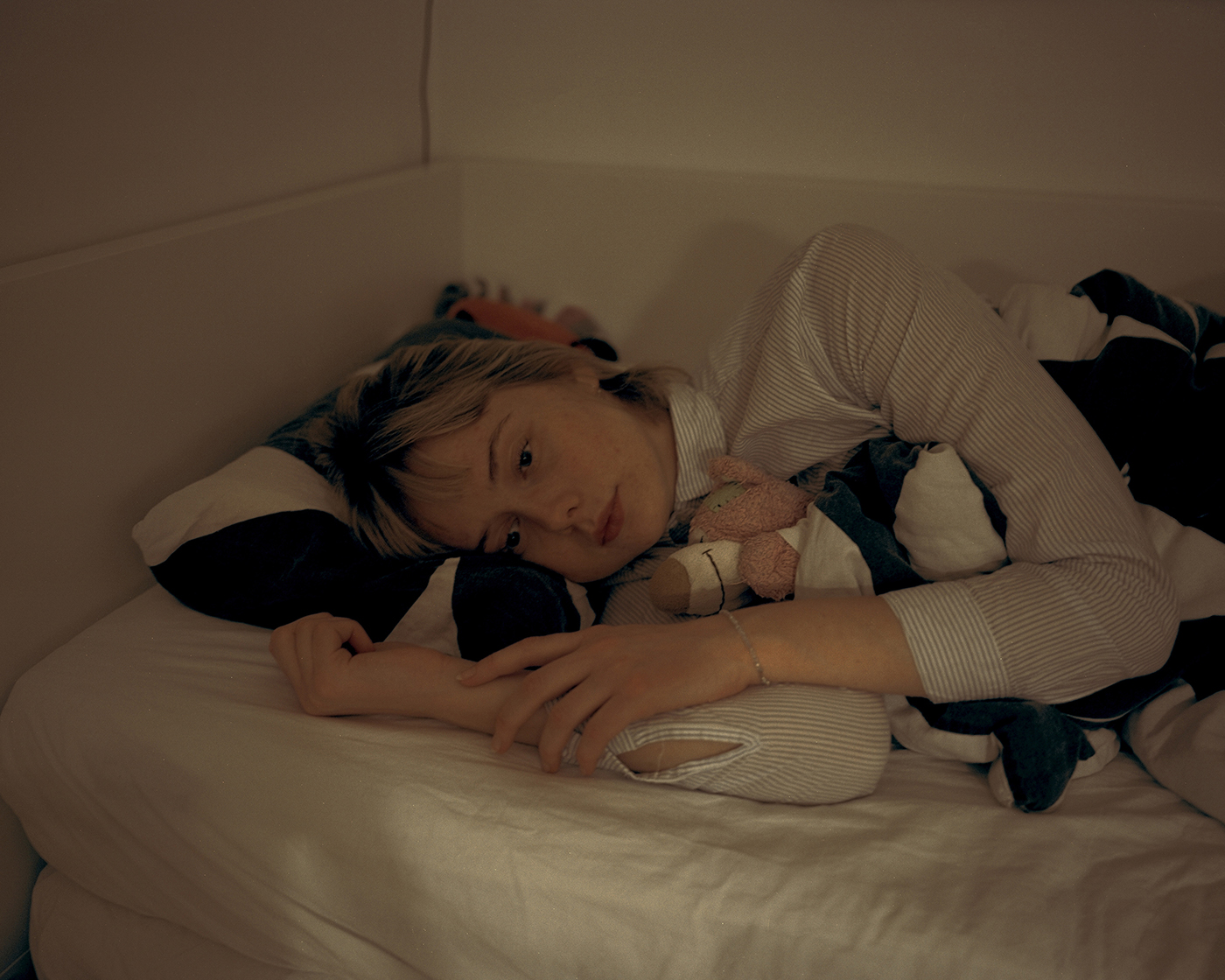
STILL PICTURE STORY
by Liv Møller Kastrup – made in the fall 2020 during her third term at DMJX.
The night can feel long, when we’re not able to fall asleep. Time stands still, and the darkness surrounds us. Five young people, who all suffer from insomnia, are living proof of a new statistic. A statistic showing that one out of four young people more than often deal with insomnia.
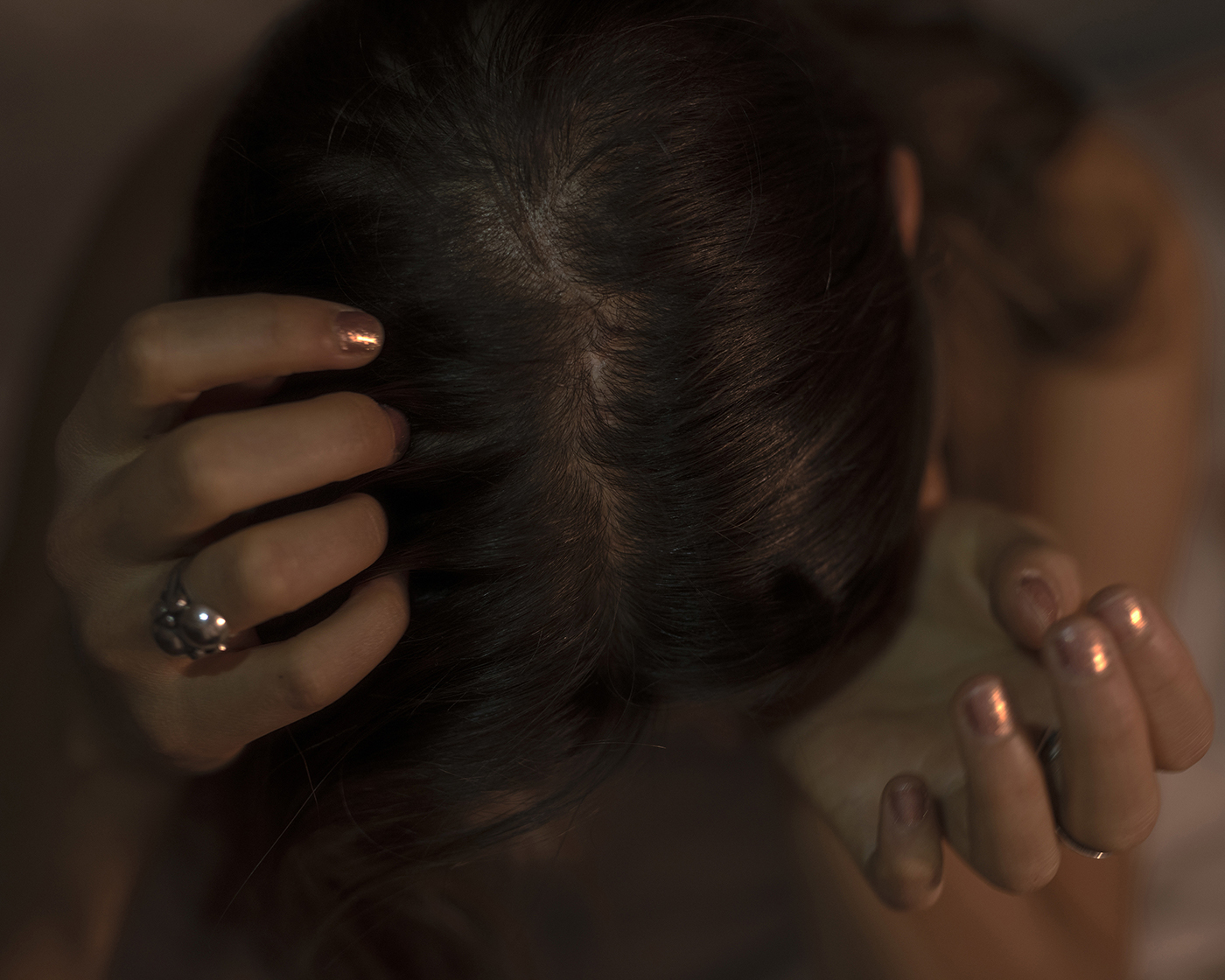
11:16 PM…
Julie, 21 y/o, Journalism-student,
“I’m missing the ability to turn off, when I’m supposed to go to sleep.”
Julies father is ill, and knowing that everything can fall apart in a single moment, she has a hard time letting go and giving in, falling asleep.
“When I can’t fall asleep it is often because my thoughts start racing. It’s as if I have ten noisy radios around me.”
When Julie closes her eyes, she feels handed over to the care of her thoughts. Like a prison. And often the thoughts can become so specific, that she can see an accident play out in front of her.
Sometimes she suddenly sees her hands giving CPR.
Julie has tried many things, in the attempt of helping the sleep come along. That is also the reason why she has a strong bottle of sleeping pills at her bedside.
“The fact that the pills is at the table, gives me the confidence, that I have the comfort of sleep at hand, if the night becomes too long.”
11:58 PM…
The Danish Ministry of Health has collected data from 25,000 young people between the ages of 15-25 years. The numbers show that 28 percent females and 21 percent males suffer from insomnia more than once a week.
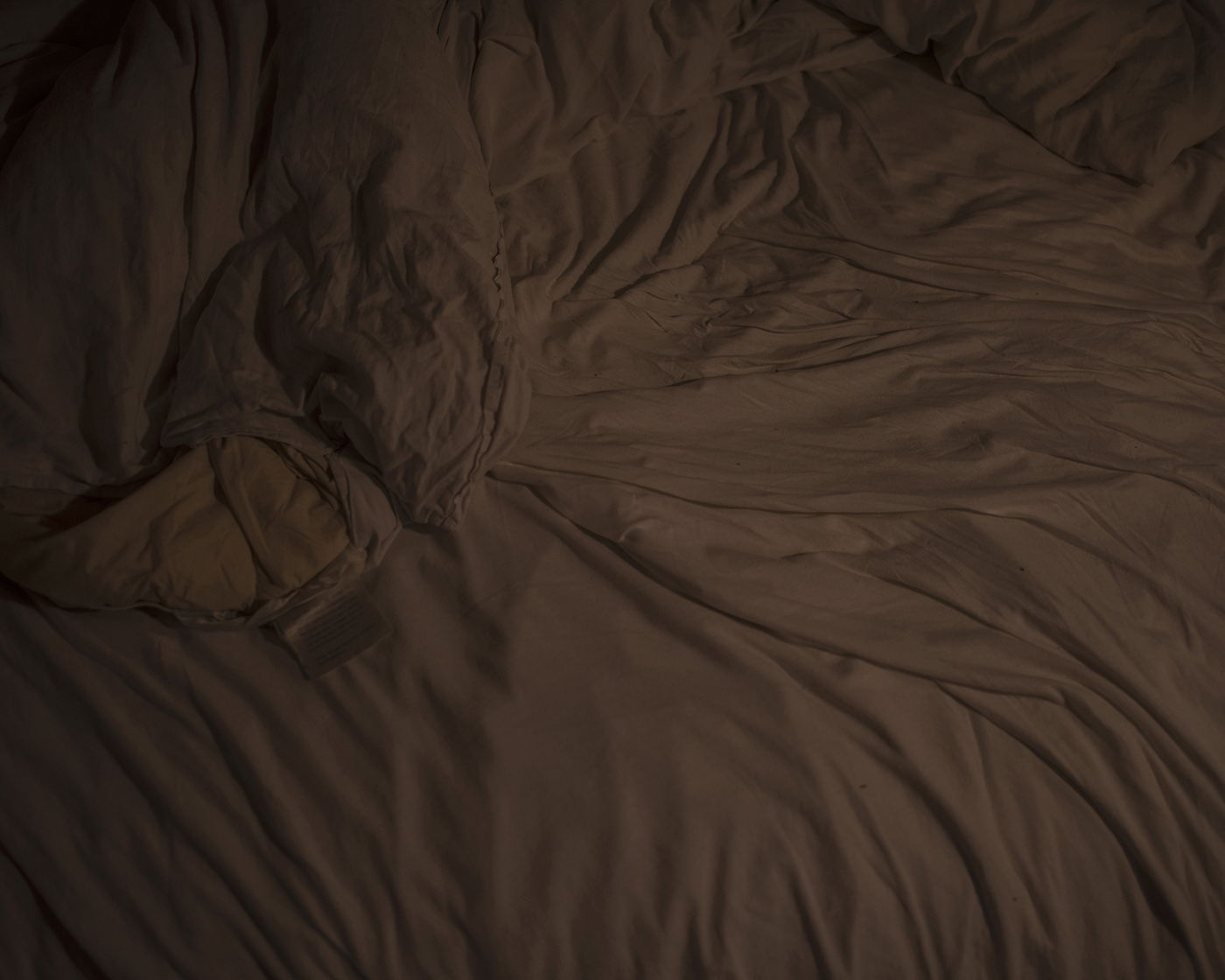
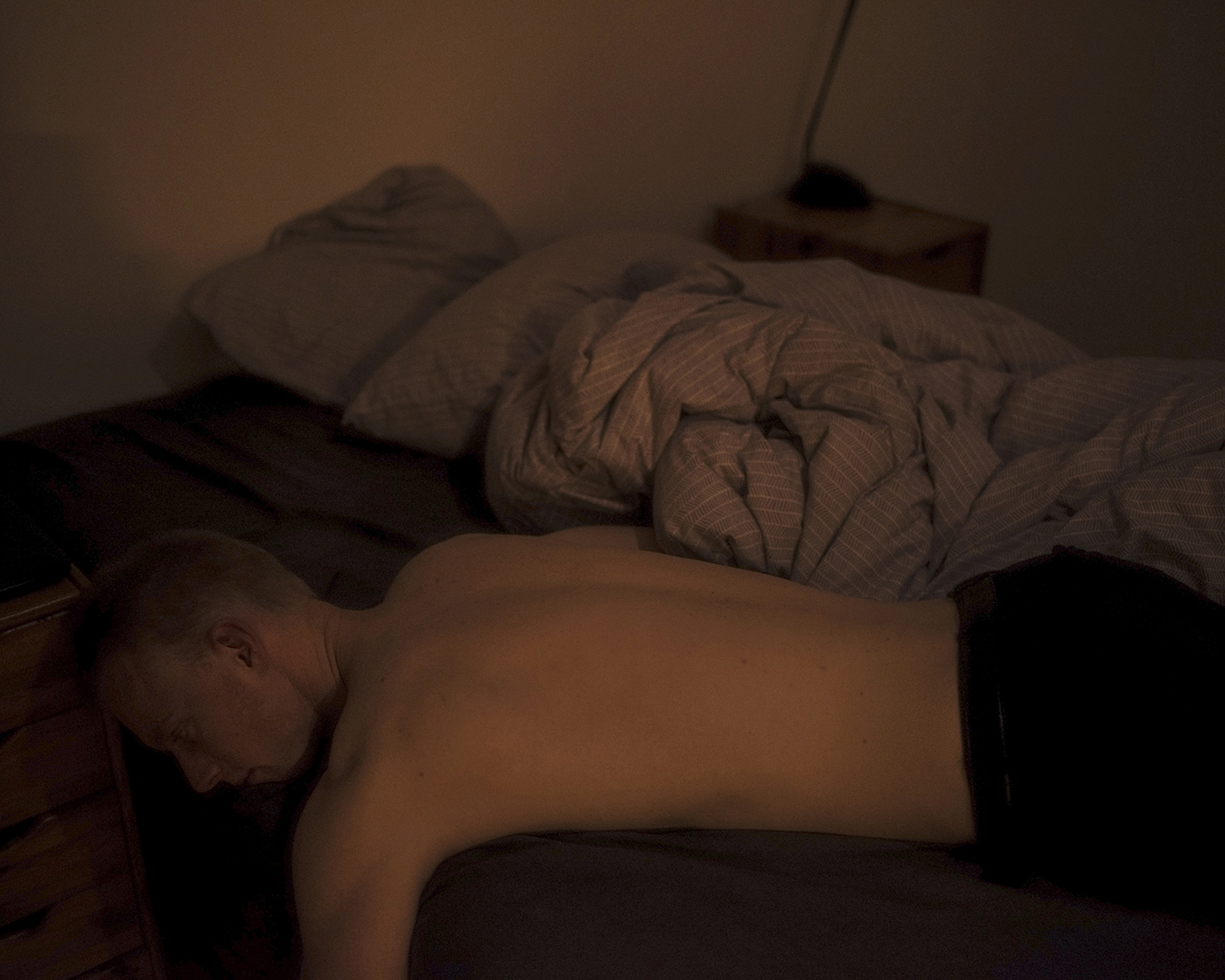
12:34 AM…
Albert, 23 y/o, barista
“It can take me all night to fall asleep”
The insomnia comes and goes. The worst period was a couple of years ago, when Albert was in High School. He didn’t sleep at night, and was so exhausted during the day, he had a hard time keeping up with school. Eventually he had to drop out in the beginning of his senior year.
“I have got to stop thinking about how I just have to fall asleep. That’s when it becomes almost impossible.”
”Nogle gange vender jeg mig om i sengen, lægger fødderne på hovedpuden. Det hjælper. Men det
er et trick man skal gemme til de dage, hvor det er værst. Ligesom Melatoninen”.
“I sometimes turn around in bed and put my feet on the pillow. It helps. I save that trick for the days when it’s the worst. Like the Melatonin.”
01:46 AM…
A bright screen and a vibrating phone. Worrying about school, or personal problems. Besides bright screens, a poor daily life are one of the main explanations the report gives for young peoples insomnia.
The report however is inconclusive whether insomnia leads to a poor daily life and well-being, or whether a poor daily life and well-being lead to insomnia.
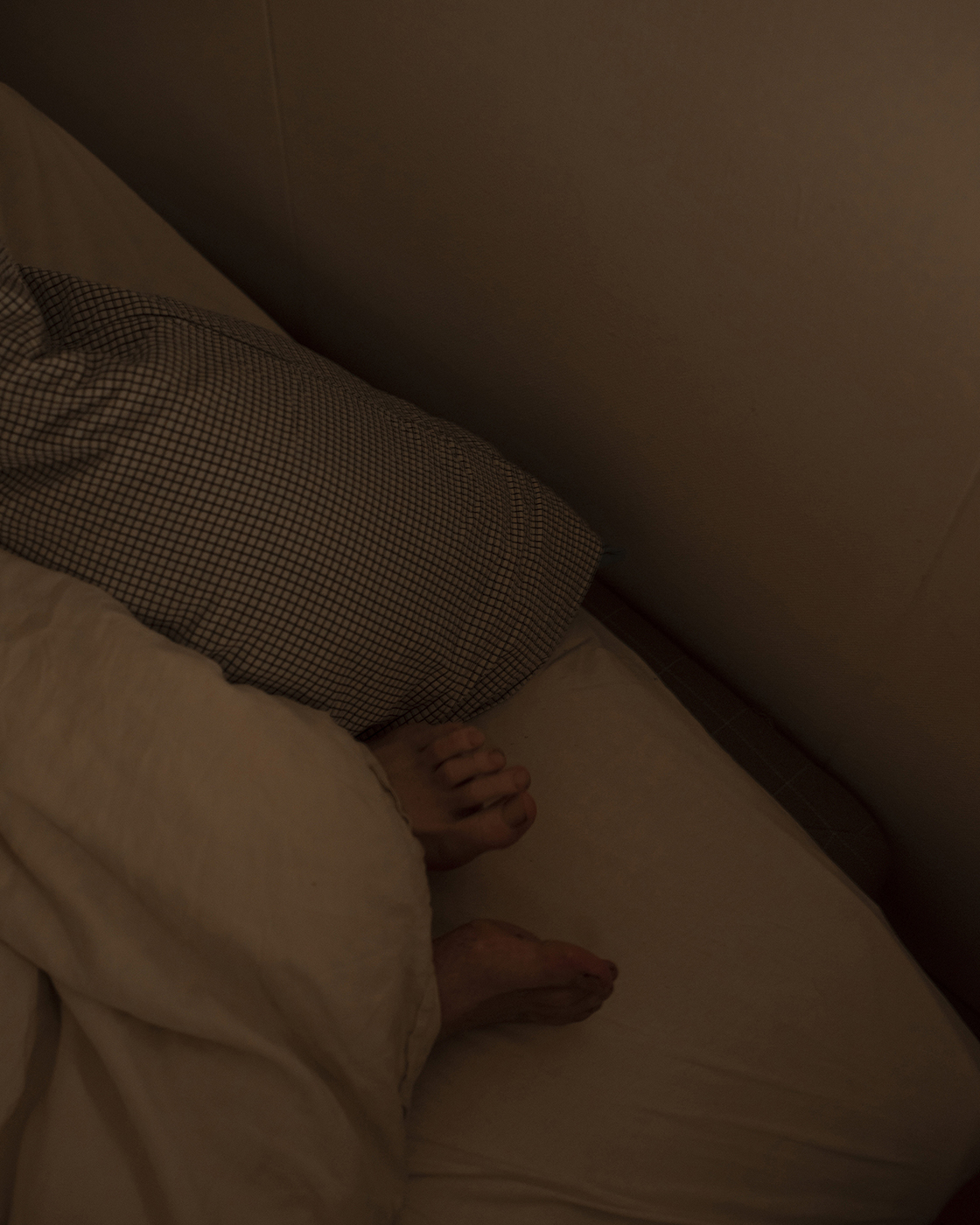
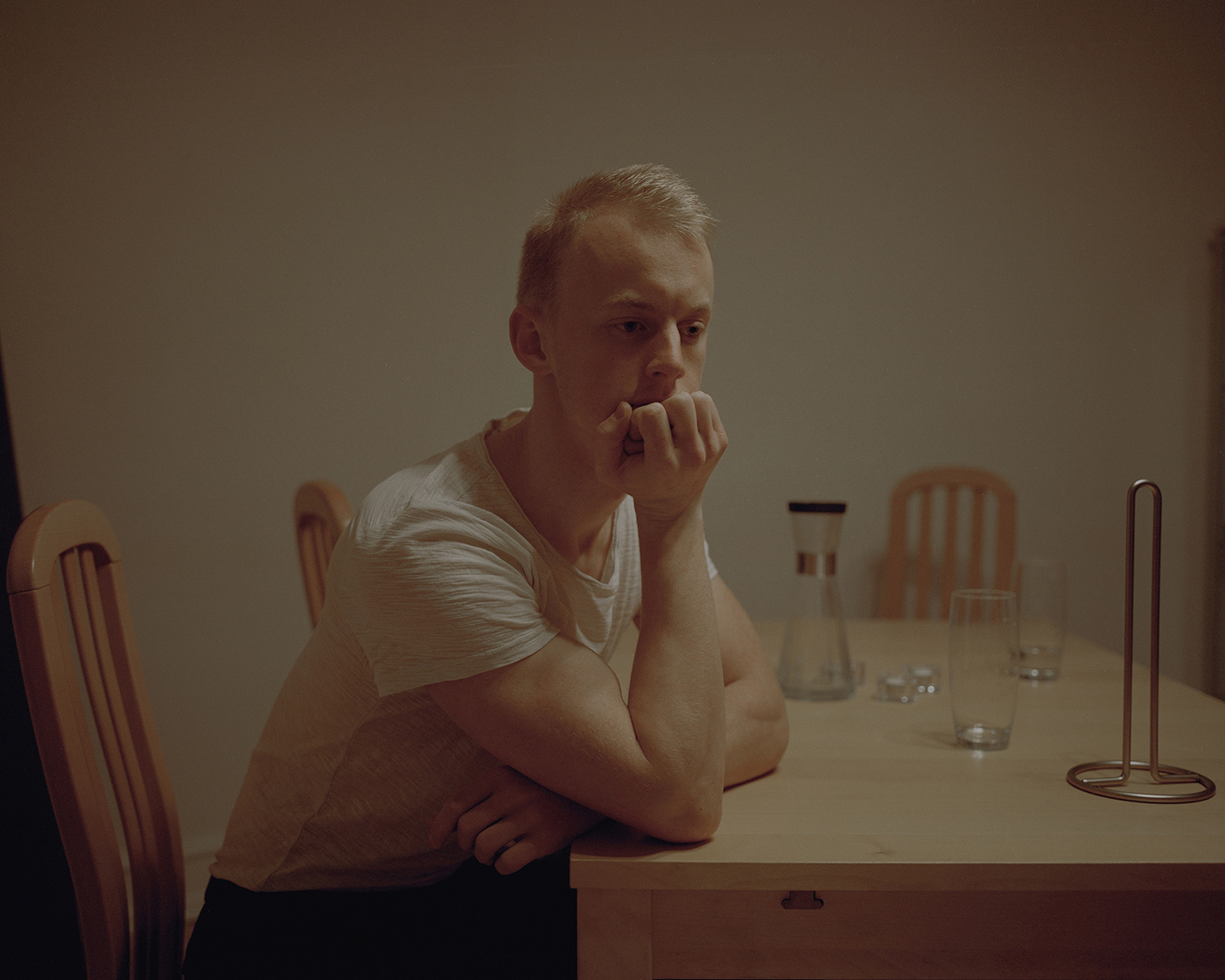
01:47 AM…
Mikkel, 22 y/o, store clerk in an electrical shop
“I didn’t sleep for four nights straight. Right before a final.”
For Mikkel sleep is difficult for more than one reason.
“Most men in my family have crowded thoughts. Your head is just filled to the rim with thoughts.
Both logical and unnecessary. I know the feeling from when I’m in my bed, about to go to sleep. That’s when I can’t pause my brain.”
Mikkel got his first computer at the age of 10. His problems with amnesia started around that age. He has sought help from his doctor numerous times.
His doctor thinks that the combination of a hyperactive brain, a competitive mind and adrenaline-packed computer games have hurt, or maybe even destroyed, his brains understanding of when to sleep.
Some nights, he must accept that he will not sleep. Instead, he spends many hours lying in bed with his eyes closed, listening to prerecorded hypnosis sessions or recordings of thunderclouds. He does not sleep, he rests.
“Sleepless nights is the feeling of being in a limbo – to tired to be awake, however awake enough not to sleep.”
02:08 AM…
When we don’t sleep at night it has consequences for our psysical and mental health. It is necessary for humans to sleep, and scientists are constantly trying to gain more knowledge in the field.
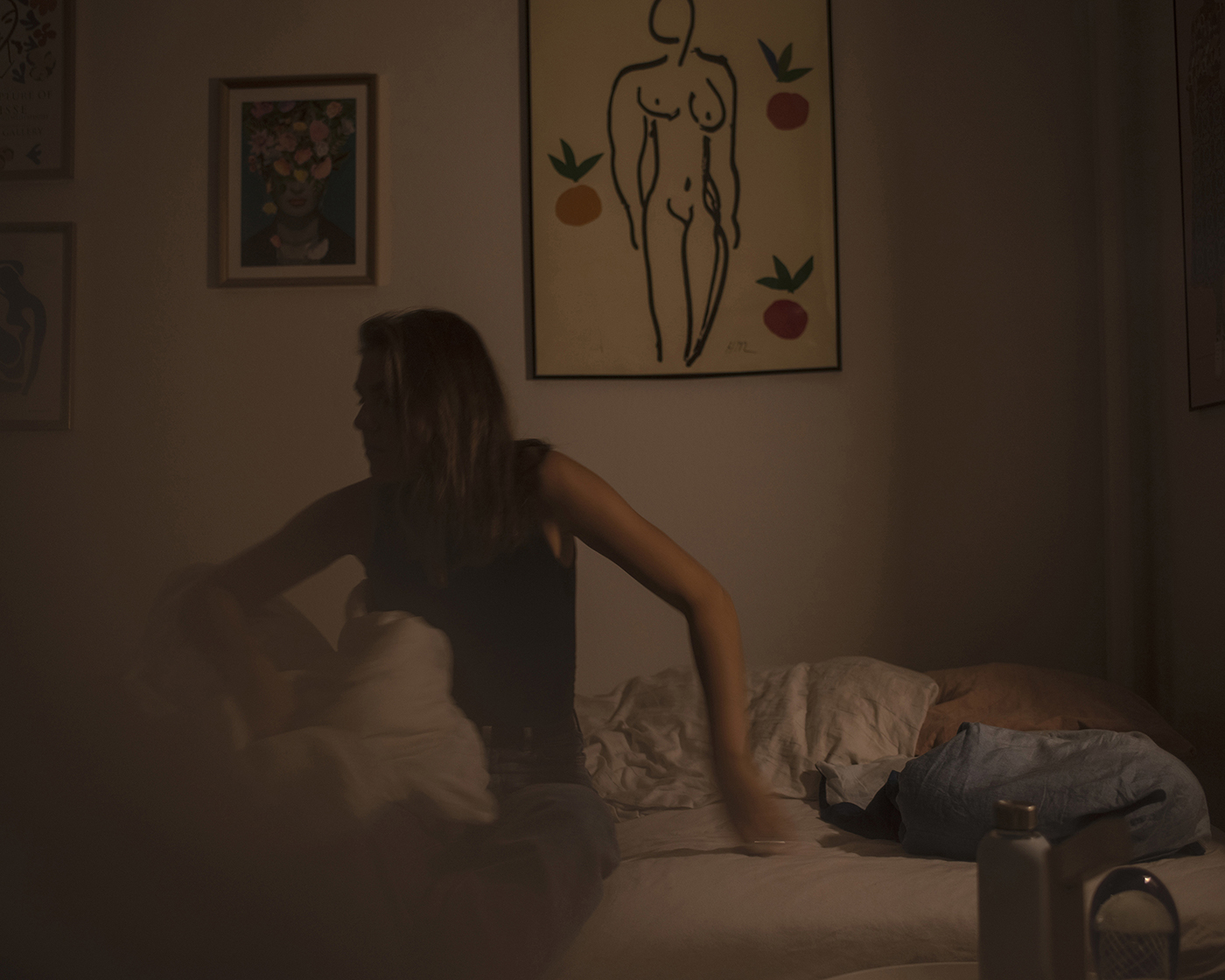
03:31 AM…
Cecilie, 29 y/o, unemployed after a longer sick leave
“I’m not very good at going to bed,”
Cecilie has always been a nightowl, and doesn’t see herself as a morning-person.
After an athletics injury, she went on sick leave from university. After that the nights got even longer, now that she didn’t have to be up at a certain time in the morning. She doesn’t feel tired at night, and only feels tired as the sun begins to rise.
“Besides the general expectation that you sleep at night, there’s nothing else I have to do. I can do whatever I want, and that’s when I forget to sleep.”
04:12 AM…
Most sleep researchers agree that young people between the ages of 15 and 25 need between seven and ten hours of sleep every night.
04:14 AM…
Melatonin is the sleepinghormone our brain produces naturally. But it is also a prescription given by the doctor, often in an attempt to prevent insomnia. Julie, Albert, Mikkel and Sandra have all otten prescriptions for melatonin at some point. Data from 2017 to 2018 show that more young people and kids get prescriptions for melatonin in an attempted fight against insomnia.
04:31 AM…
Sandra, 22 y/o, public health-student
”I can’t remember the last time I actually slept through a night.”
Last fall Sandra hit her head. A loose ceiling made a crack in her skull and since then, she’s had a hard time sleeping at night. A problem that didn’t exist before.
It can be a headache that keeps her up at night. A sense of uneasiness and crowded thoughts can wake her up.
She repeats the same statement a couple of times.
“I really hope that it is just a for a while. That it will pass.”
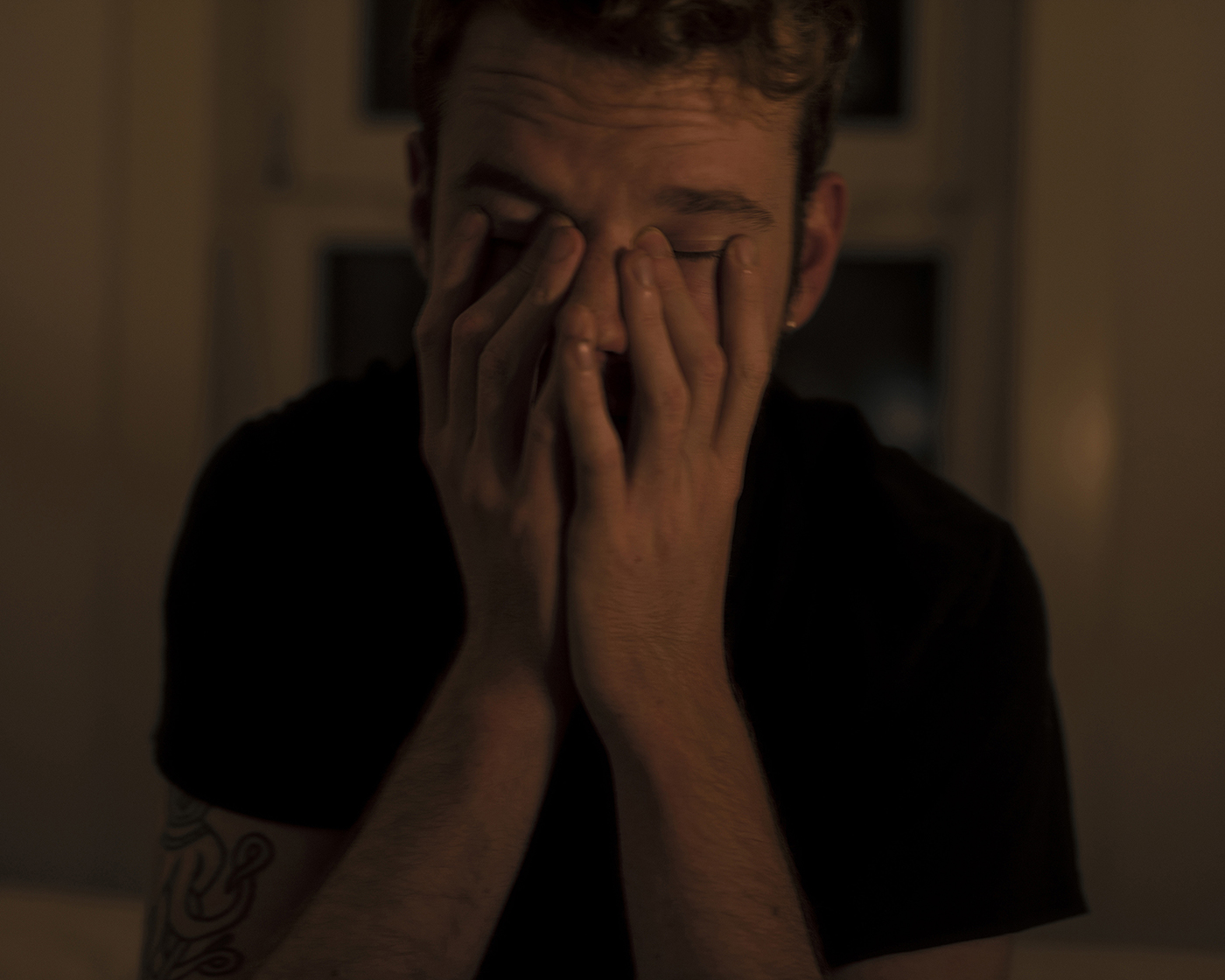
04:49 AM… 05:03 AM… 05:22 AM…
Liv Møller Kastrup won second prize in the “Portrait Series” category at the Danish Picture of Year 2020 with this project.



